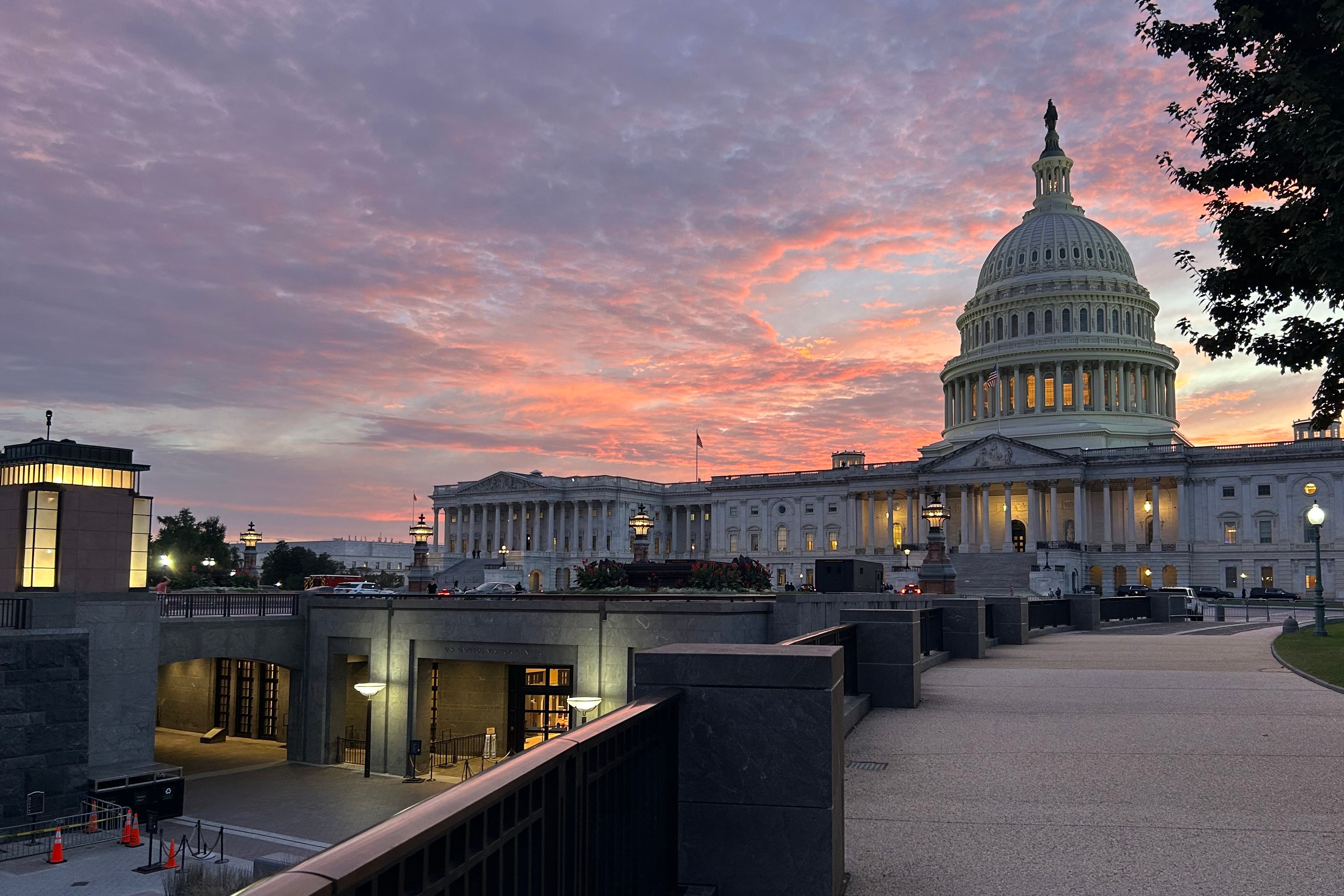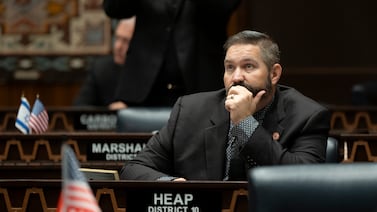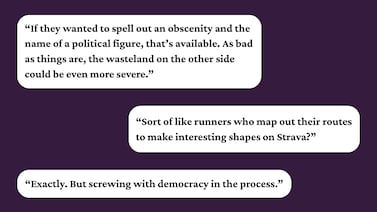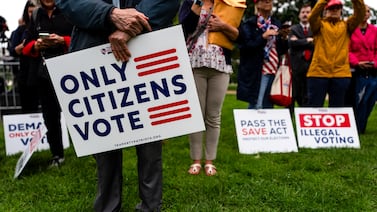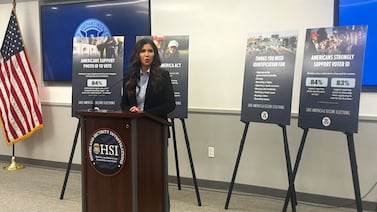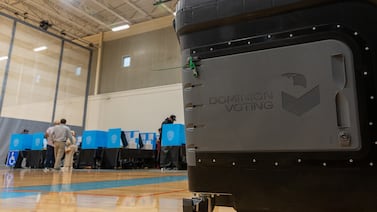Votebeat is a nonprofit news organization reporting on voting access and election administration across the U.S.
This news analysis was originally distributed in Votebeat’s free weekly newsletter. Sign up to get future editions, including the latest reporting from Votebeat bureaus and curated news from other publications, delivered to your inbox every Saturday.
On the eve of a government shutdown Tuesday, dozens of local election officials from around the country wandered the labyrinth of office buildings adjacent to the U.S. Capitol, lobbying members of Congress for more federal funding of elections.
In some ways, the local election officials were among the only people in the Capitol complex who didn’t really have to worry about the pending shutdown: The $15 million in election security grants that Congress appropriated for the states this year has already been doled out. But that amount helps explain why they were on Capitol Hill.
States and local jurisdictions are primarily responsible for running elections, and bear most of the costs. But elections have become increasingly complex and expensive, because of changes to state laws and cybersecurity concerns, and they’re under unprecedented scrutiny, from ordinary voters right up to the president.
Congressional funding for elections — generally in the form of grants awarded to states by the U.S. Election Assistance Commission under the Help America Vote Act — has fluctuated over the years. In recent years, it’s been very little, falling short of what experts and election administrators say is needed.
The local election officials, through a lobbying effort coordinated by the Project for Election Infrastructure, a nonpartisan nonprofit focused on advocating for funding for state and local election administration, have been urging Congress to appropriate $400 million for election security in fiscal year 2026.
On Tuesday, that meant making the rounds on Capitol Hill, meeting mostly with congressional staff for members from their home states. The Maryland delegation ran into Rep. Steny Hoyer, a Democrat, in the elevator, scoring a chance to talk to him directly.
“They are all acknowledging the need,” said Brian Sleeth, the director of elections in Warren County, Ohio, after a morning of meetings on the House side. Tonya Wichman, director of elections in Defiance County, Ohio, said part of the goal is making sure members understand what election officials do and what they need in order to do it. “The standards are set so high,” she said.
In the afternoon, the Ohio delegation met with representatives of the state’s two Republican senators, including a hallway talk with a staff member for Sen. Jon Husted, a former secretary of state. The group had a longer meeting with Amanda Gould, the chief counsel in the office of Sen. Bernie Moreno and a former state elections director.
The prospects for federal funding are always uncertain, and this year, given the brinksmanship over even keeping the government open, that seems even more so than usual. But this particular group said everyone they met with seemed attentive. “As long as people are willing to listen to us,” said Shari Huff, the deputy director of elections in Warren County.
This is not the first time the need for more federal funding for elections has come up. The Bipartisan Policy Center pushed for Congress to allocate, yes, $400 million in fiscal year 2024, characterizing federal investment in elections as “irregular, unpredictable, and insufficient.” That year, Congress allocated $55 million, which amounted to about $1 million for each state and $200,000 for territories.
The House put $15 million in election infrastructure funding in an appropriations bill for fiscal year 2026, but it remains to be seen what Congress will eventually do — and, with the federal government shut down, when.
Carrie Levine is Votebeat’s editor-in-chief and is based in Washington, D.C. Contact Carrie at clevine@votebeat.org.

